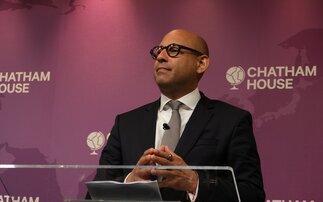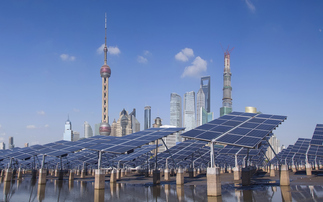ClientEarth lawyer Jonathan Church urges leaders to aim for 1.5 degrees from day one
Before, during and since the negotiations on climate change in Paris last month, ambitions have been high.
In fact, the UK formed part of a "high ambition coalition" which sought, among other things, the inclusion in the Paris Agreement of a 1.5 degrees Celsius target rise in global temperatures, two degrees lower than what is projected by 2100 according to current emissions trajectories.
This coalition was successful: the 1.5 degree target will be enshrined as a guiding principle of the Paris Agreement, alongside the "well below 2 degree" target.
And yet. No sooner had the French Foreign Minister, Laurent Fabius, brought down his gavel, than the UK Secretary of State, Amber Rudd, began down-playing the ambition and the significance of the targets that she had supported.
She said: "The 1.5, I would say, is aspirational. At the moment, it's only the 2 degrees that's operational." She used precisely the same phrasing a few days later when she appeared before the Commons Energy and Climate Change Committee. And David Cameron took a similar tack this week before the Liaison Committee when he described how Paris had in the first instance agreed "2 degrees" as something "to be kept in touch with". In my opinion, this language misrepresents the Paris Agreement - in three respects:
1. Most obviously, the Paris Agreement does not include a "2 degree" target: indeed, it aims "well below" such a target. It is open to question what this means: closer to 1.6, or 1.9? But it certainly means lower than two degrees, and every 0.1 degree matters hugely. Indeed, the UK's current trajectory under the Climate Change Act actually aims at slightly above 2 degrees, so the distinctions here are significant. We must not use "2 degrees" as a shorthand for what was agreed in Paris.
2. The 1.5 degree target is every bit as operational as the "well below 2" target. Once the Paris Agreement is in force, both targets become ‘live'. There is no mechanism which ‘switches on' the 1.5 degree target in due course. From day one, both are operational.
3. Distinguishing between the two targets on the basis that one is merely "aspirational" again does the agreement a disservice. Both targets ("well below 2 degrees" and "1.5 degrees") are constituent parts of the agreement's guiding principle. It is true that the "well below 2 degree" target is introduced in stronger language than the 1.5 degree target (‘will "hold" to' as compared with ‘will "pursue efforts to limit" to'). But the legal duties which aim at realising these temperature goals do not distinguish between them; they do not elevate one above the other. And those duties use the same softer language in relation to both. This arguably has the effect of all but dissolving any difference between the strength of the two goals.
Putting legal arguments to one side, there is a good practical reason that the 1.5 degree goal cannot be left on the shelf until the time is right to use it: setting out on a trajectory to 2 degrees may well close off the option of ever moving to the 1.5 degree target. Once enough emissions have occurred, realising 1.5 degrees becomes impossible without resorting to ‘negative emissions' solutions. If the 1.5 degree goal is to mean anything, it has to be the goal from the outset.
The Paris Agreement wisely saves its most robust legal language for the processes which will drive countries to commit to increasingly ambitious emissions reductions over time. This is what makes it so credible and why it is able to send out such a strong signal for businesses and civil society that the direction of travel will now be very clearly one-way.
Closer to home, the carbon budgets which the government sets under the Climate Change Act must reflect the new reality that Paris has opened up. But we cannot react appropriately to the Paris Agreement if we do not first acknowledge what it really says.
This article is part of BusinessGreen's Road to Paris hub, hosted in association with PwC.







